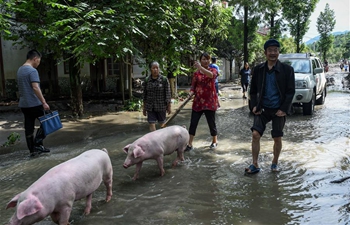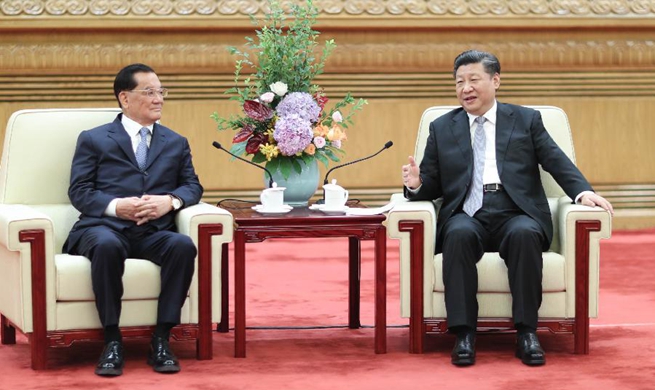PARIS, July 13 (Xinhua) -- French Prime Minister Edouard Philippe announced a new counter-terrorism plan on Friday to improve coordinated action to face "endogenous" terror menaces.
With an eye on presumed suspects on national territory that could put the security on edge, the plan included 32 measures that aim to better identify and understand the terrorist threat and its evolution, so as to prevent and impede terrorist plots.
The new plan, which completes the one to tackle radicalization presented in February, also aims to bolster coordination between the country's different security services and strengthen synergy between European countries.
Besides, the government wants to better monitor 450 prisoners convicted of terrorism and radicalization who are expected to be released next month, via the creation of a permanent monitoring within the Counter-Terrorism Coordination Unit.
"The murderous nature and unpredictability of recent acts call for a new adjustment," said Philippe during a visit to the headquarters of the Internal Security Directorate (DGSI).
In a report released earlier on Friday, the French government noted that the "terrorist threat has changed significantly since the significant setbacks of Daesh in 2017 and the almost total loss of its territorial holdings in the Syrian-Iraqi zone...the neutralization of many of its leaders", but "the endogenous threat remains high in the national territory".
"In the last two years, attacks and attempts have confirmed the primacy of an endogenous, diffuse and omnipresent threat," the report said.
France has become a major target of frequent terrorist attacks following its military operations in Syria, Iraq and the Sahel region.
A wave of attacks, claimed by the Islamic State, have hit France several times, the bloodiest of which was in Paris where a series of explosives and shootings left 130 victims dead in November, 2015.
In October 2017, French President Emmanuel Macron signed an anti-terrorism law which he said was necessary to combat the high terrorism menace at home.
The bill enshrines emergency security rules in ordinary law that give greater power to police to search and make arrests without a judge's approval, and restrict people movements and gathering.













